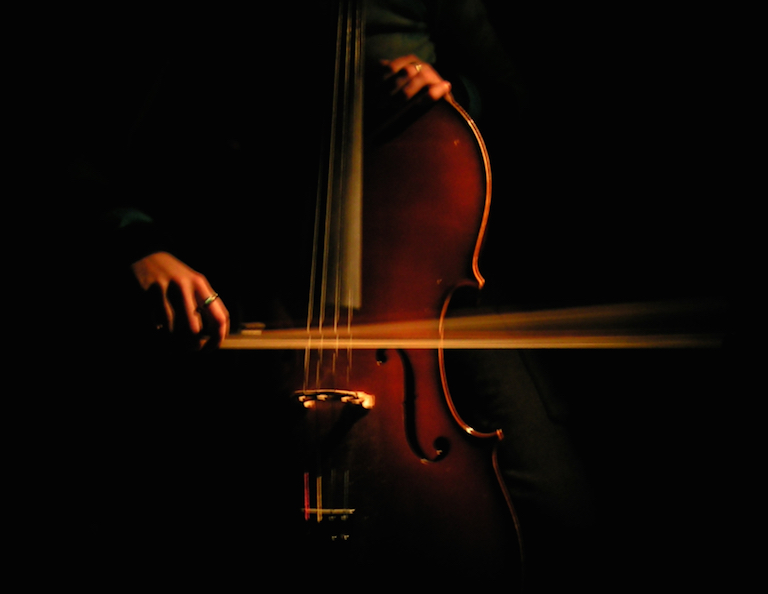Learning to play music: Does “raising up” the lower centers lead to higher centers?
Some decades ago, after I began to work in a Fourth Way school, I returned to music. I needed to study the cello to play in a nascent community orchestra. I had stopped playing in my teens and my beautiful instrument languished at my parent’s house.
Playing the cello requires all four lower centers. My body, the instinctive center, had to learn to become loose. That’s a word I came to use rather than “relaxed.” Relaxed has a connotation of flaccid or without structure. Loose still has some form and structure of its own. To play the cello well, I had to learn to let joints, muscles, and bones participate flowingly in a “sitting dance.” (Unlike most instruments, you really can only play the cello sitting down.)
I had to train the moving center: fingers, hands, wrists, elbows, shoulder, back, and buttocks. The left hand does the fingering; the right hand holds the bow. Left-hand fingertips must press the strings at precisely the right spot on the fingerboard to play in turn. And not press too hard, so the string can vibrate. The right hand and arm must learn to pull the bow evenly over the string so the sound is constant, unless you want to get louder or softer through the duration of the note.
Breaking down these separate skills sounds exhausting. But there is more. My intellectual center comes into play reading music and trying to understand literally what a composer wishes to represent. But then I use my emotional center to actually interpret the phrasing and dynamics and “make music”. Listeners don’t care about all the machinations it takes to produce the music. They just want to be bathed in the singing.
What does this study have to do with work on myself? First of all, I had to be consistent. If I let the study go for a few days, or weeks, I lost ground. Secondly I had to approach the octave with intellectual parts of centers. I can’t consign learning to the lazier parts of myself. Of course, the lazier “mechanical parts” of centers will try to find shortcuts, but there are none. Learning the cello is a tool for developing attention. I am practicing a scale with certain intent. The mind wanders, pondering dinner. Keep bringing it back to whatever aspect of technique or expression I am working on.
I had the good fortune to find a gentle but firm teacher who was willing to take on an adult learner and help me rebuild my technique from the ground up. She was patient and loving, always keeping the music in mind as we struggled through scales, technical exercises, Bach and Beethoven.
She had an uncanny teaching ability to focus on one aspect of technique, say the left-hand vibrato, while not worrying how poorly the right-hand bowing was doing. Then, after a few months, we focused on the right hand and let the vibrato take its course. Not only did I learn cello from her, I learned about pedagogy: the art of teaching.
Have I become a virtuoso? I suspect that star concert soloists, the way we know them today, are freaks of nature. The Gods gave them gifts, recognizable in childhood, that luck and their own will allowed them to develop. I am not virtuoso but I can make music that pleases me and occasionally others.
What does this study have to do with stoking my higher centers or contributing to my conscious evolution? First of all, the process has been fun. “Fun” seems to be part of higher centers, which we can see as the jokers in the deck of playing cards. If it weren’t fun, I couldn’t have stuck it out for decades.
Secondly, I had to learn to not identify with my lack of progress. Playing out of tune, making scratchy sounds, annoying my housemates by practicing at weird hours, was not always fun. I had to persevere with my seeming lack of success. Part of me wanted, and still wants, to be perfect, but musical virtuosity not is granted me in this lifetime.
Lastly, I have been granted the opportunity to play Bach. The six Bach Cello Suites are a lifelong study in order and celestial beauty. Do my higher centers open when I attempt to play the Suites? I am given glimpses. When I practice, and play well, with the lower centers participating equally, my heart can open to a deliciously serene state. I suspect this state is a gateway. A gateway to what, I cannot say for certain.
-Roger Kent is a musician and a project management instructor, a Fourth Way student for several decades.

Author Roger Kent
